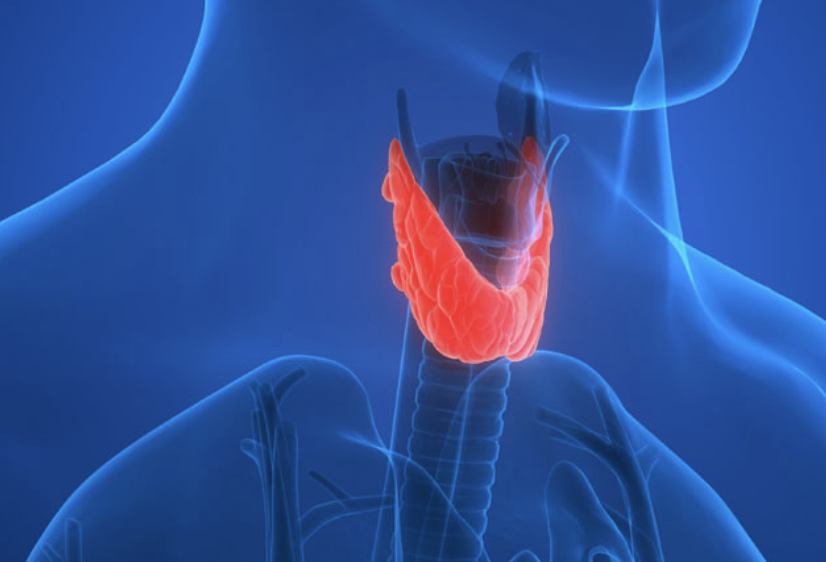The Benefits of Thyroid Medication Levothyroxine
Thyroid Medication Levothyroxine is one of the most popular medications for treating primary, secondary and tertiary hypothyroidism. Primary hypothyroidism happens in the thyroid gland while secondary hypothyroidism happens in the pituitary gland.
Tertiary hypothyroidism, on the other hand, is a very rare condition. Thyroid Medication Levothyroxine is available as Synthroid, Levoxyl, Unithroid and Levothroid, and it can either be prescribed alone or in conjunction with other medications as part of a combination therapy for hypothyroidism.
According to the American Thyroid Association (ATA), more than 12% of the American population will develop some form of thyroid condition during their lifetime. In fact, 20 million adults are already suffering from thyroid disease with up to 60% of people unaware of their condition.
Hypothyroidism is one of the most common thyroid conditions and it happens when the thyroid gland doesn’t produce enough thyroid hormones to sustain the body’s requirements. Patients suffering from this medical condition usually experience symptoms related to slow metabolism.
What is the mechanism of action for thyroid medication Levothyroxine?
Thyroid Medication Levothyroxine is essentially the synthetic form of thyroxine, which is the thyroid hormone naturally produced by the body. The process of thyroxine production begins with the hypothalamus secreting thyrotropin-releasing hormone (TRH) that also triggers the anterior pituitary to release thyroid-stimulating hormone (TSH), which then triggers the thyroid gland to secrete 80% thyroxine (T4) and 20% L-triiodothyronine (T3).
50% of this T4 is converted to T3 after which these thyroid hormones bind with thyroid receptor proteins within the cell’s nucleus.
Thyroid hormones work by influencing DNA transcription that also triggers body metabolism. So, when one of these processes are interrupted, hypothyroidism occurs. This condition is then treated with thyroid medication Levothyroxine, which mimic’s the body’s thyroid production of T4.


What is the proper administration of thyroid medication Levothyroxine?
Thyroid medication Levothyroxine is usually taken orally in the form of a capsule, tablet or solution. On an empty stomach to help with absorption, Levothyroxine is taken at least 30 minutes before breakfast or 3 hours after dinner.
The capsule should be swallowed whole while the tablet may be crushed into a 5 to 10ML water to be consumed immediately. Levothyroxine solution should also be administered directly into the mouth undiluted or diluted in water.
If a patient is admitted in the hospital, he could be prescribed intravenous Levothyroxine along with a regular monitoring of vital signs. Some patients may also be prescribed suppository Levothyroxine, especially those who cannot tolerate oral administration due to an underlying complication or medical problem.
The usual initial Levothyroxine dose for adults is 1.6 mcg/kg/day with a 12.5 to 25 mcg/day dose adjustment every 6 to 8 weeks depending on the doctor’s evaluation. Patients suffering from severe hypothyroidism or myxedema coma (IV) are given an initial dose of 200 to 400 mcg followed by a daily dose of 1.2 mcg/kg/day except for older patients or those suffering from arrhythmia or cardiac disease.
When symptoms are addressed, these patients are usually prescribed oral Levothyroxine of 8 mcg/kg/day. Levothyroxine is also used for organ recovery from a cadaver where 20 mcg IV bolus is given to the donor along with dextrose, insulin and methylprednisolone followed by 10 mcg/ hour of continuous infusion.
What are the common side effects of thyroid medication Levothyroxine?
Like any other medication, thyroid medication Levothyroxine also has some common side effects including weight loss, excessive sweating, increased appetite, headache, anxiety and heat sensitivity.
It may also cause an adverse reaction when used with some types of medications. This is why it’s very important to consult a doctor first so proper prescription that includes the right dose and administration could be given to the patient.
Contact Family Heights Pharmacy located in Dearborn Heights Michigan at (313) 724-1111.
See how much you can save on your prescription meds today!
This article provides general information and discussions about health and related topics. The information and other content provided in this article, website or in any linked materials are not intended and should not be considered, or used as a substitute for, medical advice, diagnosis or treatment. This article does not constitute the practice of any medical, nursing or other professional health care advice, diagnosis or treatment. We cannot diagnose conditions, provide second opinions or make specific treatment recommendations through this article or website.
If you or any other person has a medical concern, you should consult with your health care provider or seek other professional medical treatment immediately. Never disregard professional medical advice or delay in seeking it because of something that you have read in this article, website or in any linked materials. If you are experiencing a medical emergency, please call 911 or call for emergency medical help on the nearest telephone immediately.


